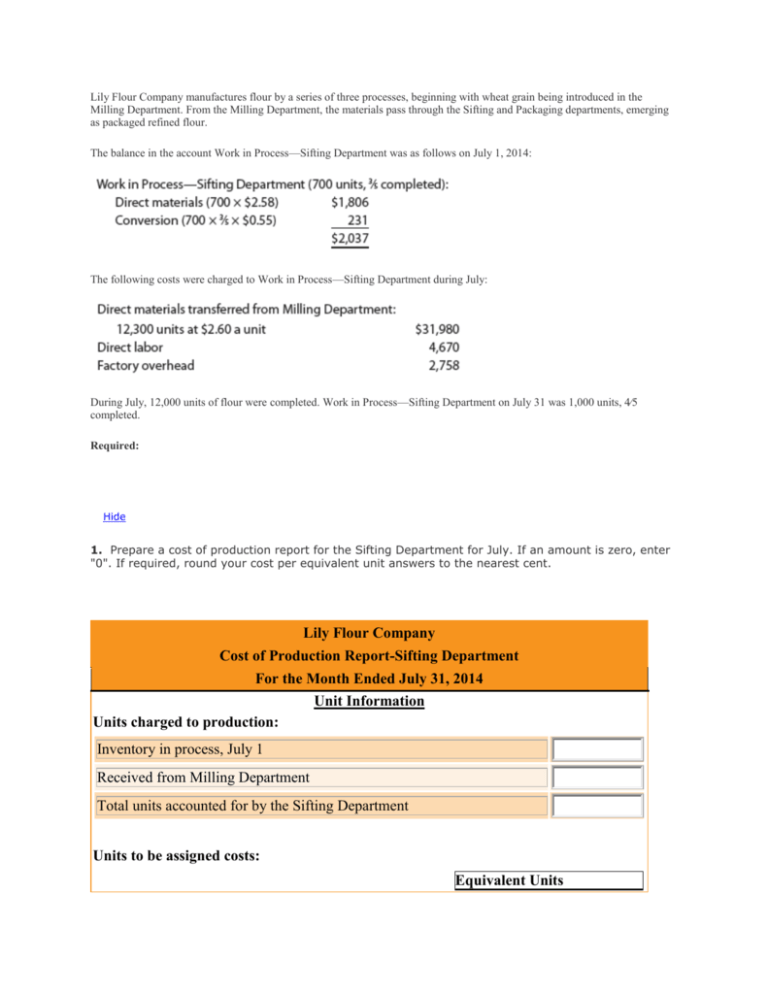lily_flour_company
advertisement

Lily Flour Company manufactures flour by a series of three processes, beginning with wheat grain being introduced in the Milling Department. From the Milling Department, the materials pass through the Sifting and Packaging departments, emerging as packaged refined flour. The balance in the account Work in Process—Sifting Department was as follows on July 1, 2014: The following costs were charged to Work in Process—Sifting Department during July: During July, 12,000 units of flour were completed. Work in Process—Sifting Department on July 31 was 1,000 units, 4⁄5 completed. Required: Hide 1. Prepare a cost of production report for the Sifting Department for July. If an amount is zero, enter "0". If required, round your cost per equivalent unit answers to the nearest cent. Lily Flour Company Cost of Production Report-Sifting Department For the Month Ended July 31, 2014 Unit Information Units charged to production: Inventory in process, July 1 Received from Milling Department Total units accounted for by the Sifting Department Units to be assigned costs: Equivalent Units Whole Units Direct Materials Conversion Direct Materials Conversion $ $ $ $ Conversion Total Inventory in process, July 1 Started and completed in July Transferred to Packaging Department in July Inventory in process, July 31 Total units to be assigned costs Cost Information Costs per equivalent unit: Total costs for July in Sifting Department Total equivalent units Cost per equivalent unit Costs charged to production: Direct Materials $ Inventory in process, July 1 Costs incurred in July $ Total costs accounted for by the Sifting Department Cost allocated to completed and partially completed units: $ Inventory in process, July 1 balance $ $ To complete inventory in process, July 1 $ Cost of completed July 1 work in process Started and completed in July Transferred to Packaging Department in $ July Inventory in process, July 31 Total costs assigned by the Sifting Department $ Hide 2. Journalize the entries for (1) costs transferred from Milling to Sifting and (2) the costs transferred from Sifting to Packaging. (1) (2) 3. Determine the increase or decrease in the cost per equivalent unit from June to July for direct materials and conversion costs. If required, round your answers to two decimal places. Increase or Decrease A Change in direct materials cost per equivalent unit $ Change in conversion cost per equivalent unit $ 4. The cost of production report may be used as the basis for allocating product costs between and . The report can also be used to control costs by holding each department head responsible for the units entering production and the costs incurred in the department. Any differences in unit product costs from one month to another, such as those in part (3), can be studied carefully and any significant differences investigated.




